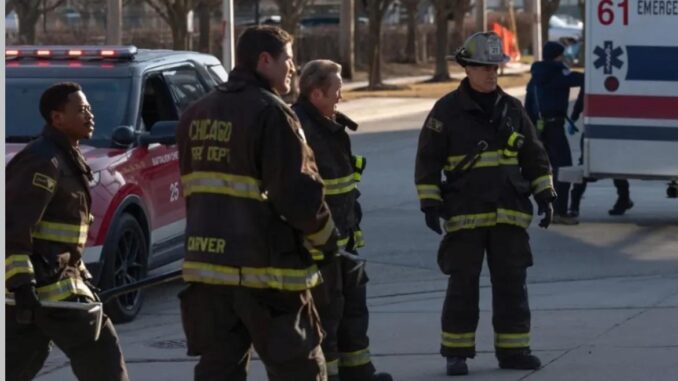
Please be aware that the following essay discusses plot points from the television show “Chicago Fire” and contains spoilers.
The Lingering Ghosts: Daniel Kyri’s Limited Return and Ritter’s Unexpected Departure in Firehouse 51
Firehouse 51, the fictional heart of the “Chicago Fire” universe, is more than just a workplace; it’s a crucible. It forges bonds of steel between its firefighters, paramedics, and rescue squad members. Within this environment, characters grow, evolve, and inevitably face challenges that test the limits of their physical and emotional endurance. This essay will examine two such instances of change within the firehouse: Daniel Kyri’s portrayal of Darren Ritter and the bittersweet limitations of his return after personal tragedy, and the question of how Ritter (md07) left Firehouse 51, which, given the show’s current timeline, hasn’t happened yet. Instead, we’ll explore what a potential departure might entail and what it would mean for the team.
Daniel Kyri’s Darren Ritter provides a crucial example of the firehouse’s impact. Initially a candidate struggling with confidence and anxiety, Ritter’s journey is one of steady growth and acceptance. He finds solace and strength in the camaraderie of his colleagues, particularly in his friendship with Stella Kidd and Joe Cruz. Kyri portrays Ritter with a delicate balance of vulnerability and determination, making his character relatable and endearing. However, Ritter’s story, like life itself, is not without its hardships. A particularly devastating storyline sees Ritter lose his beloved mentor and close friend, a seasoned firefighter who instilled in him the values of courage and service. The aftermath of this loss is a poignant exploration of grief and PTSD. While Kyri continues to portray Ritter on “Chicago Fire,” the emotional toll of this event leaves a lasting mark. His return is not a clean slate; he is forever changed, carrying the weight of his experience. The “limited” nature of his return is not about screen time, but rather a nuanced portrayal of a character grappling with lingering trauma, adding depth and realism to the show. This portrayal avoids a simplistic “healing arc” and instead highlights the ongoing nature of dealing with grief and the complexities of finding strength in the face of loss.
Now, turning to the fictional future of the show, imagining Ritter’s departure from Firehouse 51 presents a compelling, if hypothetical, scenario. As of the show’s current timeline, Ritter remains a valuable member of the team. However, considering the unpredictable nature of television narratives, imagining his departure allows us to explore the potential impact on the characters and the firehouse dynamic.
Unlike a character leaving due to a tragic accident or interpersonal conflict (both common occurrences in “Chicago Fire”), Ritter’s hypothetical departure would likely be driven by more positive circumstances. Perhaps an opportunity arises that is too good to pass up. He might be offered a leadership position at another firehouse, recognizing his growth and maturity as a firefighter. He could also pursue a specialized training program, focusing on a particular area of expertise like arson investigation or technical rescue. Such a departure would be bittersweet. While his colleagues would celebrate his success and support his ambition, his absence would undoubtedly be felt within Firehouse 51. His close friendship with Stella and Joe would be tested by distance, and the firehouse would lose a reliable and dedicated firefighter.
The impact of Ritter’s departure, even hypothetically, highlights the importance of the ensemble cast in “Chicago Fire.” Each character brings a unique perspective and skill set to the team, and their interactions create a complex and compelling dynamic. The loss of any member, even through positive means, would necessitate adjustments and create an opportunity for new relationships to form and evolve.
In conclusion, Daniel Kyri’s portrayal of Darren Ritter demonstrates the power of character development and the lasting impact of trauma. His “limited” return reflects the complexities of healing and the importance of acknowledging the enduring effects of loss. While Ritter’s departure from Firehouse 51 remains hypothetical, exploring this scenario allows us to appreciate the significance of each character within the ensemble and the potential consequences of their absence. Whether dealing with the lingering ghosts of the past or contemplating the uncertainties of the future, “Chicago Fire” consistently reminds us of the strength, resilience, and enduring bonds that define the heart of Firehouse 51.
